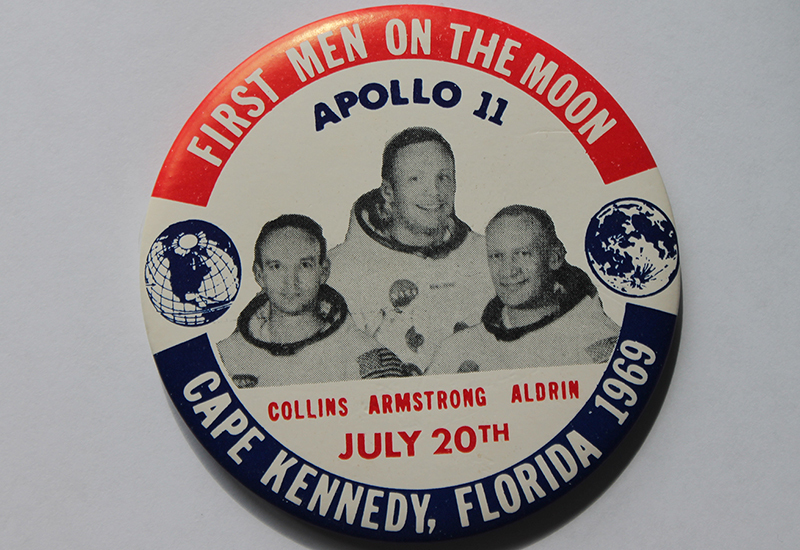
This Saturday marks the 50th anniversary of Neil Armstrong, Buzz Aldrin, and Michael Collins becoming the first people to land on the moon. But John Waters tells it differently.
“Believe me, in 1969, I was already on the moon before they got there,” Waters quips.
Jokes aside, the moon landing is a seminal event in history—it would be appropriate to say that the world can be divided into pre and post moon landing. Those who were around to see it remember it vividly, and as its half-century anniversary approaches, remembrances and reflections are abound, cataloguing one of humankind’s greatest achievements.
“It was a seminal time,” says astrophysicist and Johns Hopkins research professor William Blair, who was 16 at the time. “It was a great time to be alive and experience that as a young person. It gave not only the country but the world a way of unifying for at least a brief moment in time.”
Blair was in between his sophomore and junior years of high school. He had always had an interest in math and science, and the landing served as a crystallizing moment. Blair hopes that the recent commemorations can be similarly galvanizing for those who have only learned about the event secondhand through images or in school.
“I think it’s really important that people who were not alive at that time can talk to folks that did experience it,” Blair says. “It’s important to get some sense of that excitement and flavor for unification of thinking and exploration of space. It has the potential to engage a whole new generation of people in what happens or what could happen in the future if we apply ourselves to do it.”
Ray Villard, the news chief at Space Science Telescope Institute’s Hubble Telescope Office of Public Outreach, shares the same enthusiasm about the Apollo 11 mission. He’s nostalgic about his time as a new college student who understood the gravity of the situation and what was being attempted. He even changed his major from filmmaking to science journalism after being awestruck by what he saw.
“This was the Super Bowl of space,” he says. “It showed off the very best of the American pioneering spirit and our scientific and technical wherewithal.”
As a child, Villard remembers the moon-centric science fiction and movies that were prevalent in the 1950s and 1960s. It’s hard to have this perspective now that the landing itself is a generation gone, and both Villard and Blair have their lamentations about how the hype surrounding the achievement isn’t what it once was.
“One of the recollections that I have about that whole period is how quickly—and it’s not my personal opinion about it—the public opinion seemed to become so blasé about the moon landing,” Blair says.
Even so, in the years leading up to it, the moon was something just out of reach, the type of fodder ripe for sci-fi. That’s what made it so special to all those who were around to sit by a radio or television and listen to Neil Armstrong’s famous words.
“This is something our nation will be remembered for just like we remember the pyramids,” Villard says. “A thousand years from now, if we’re not remembered for anything else, we’ll be remembered for trying to make us an extraterrestrial civilization.”